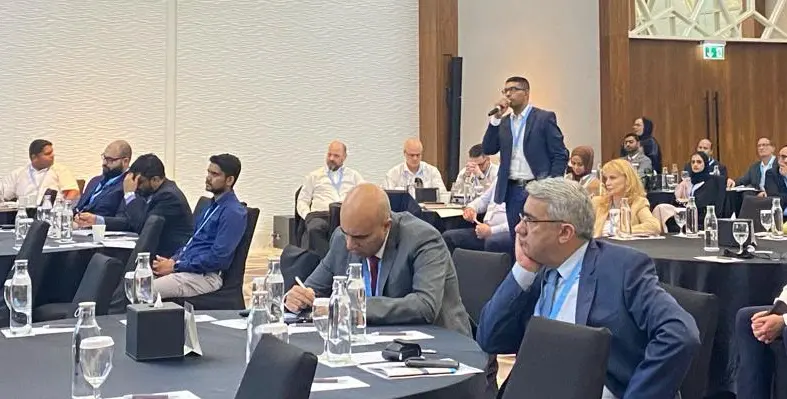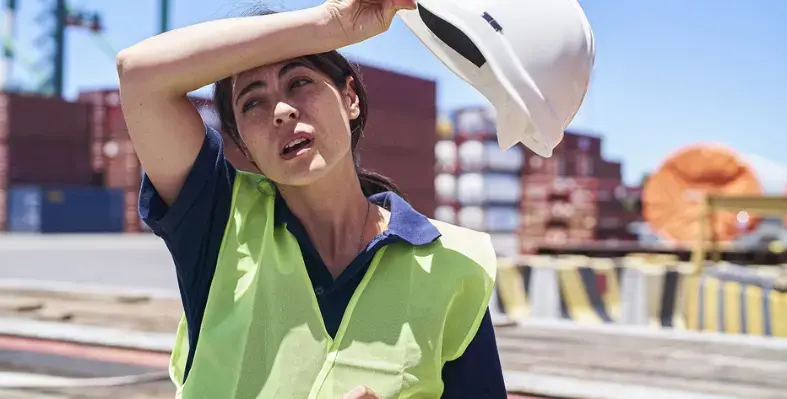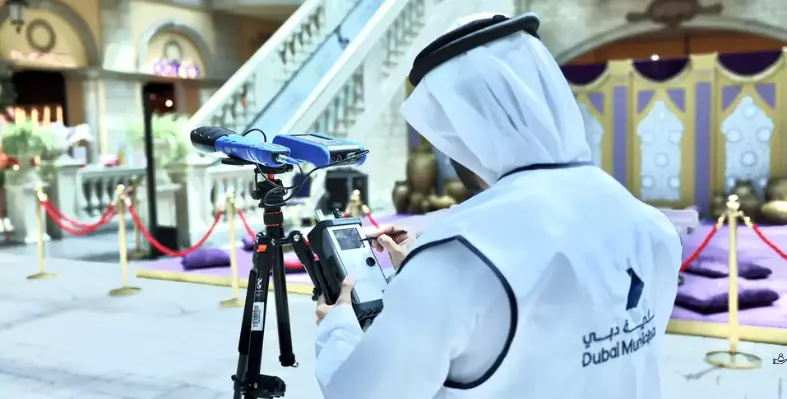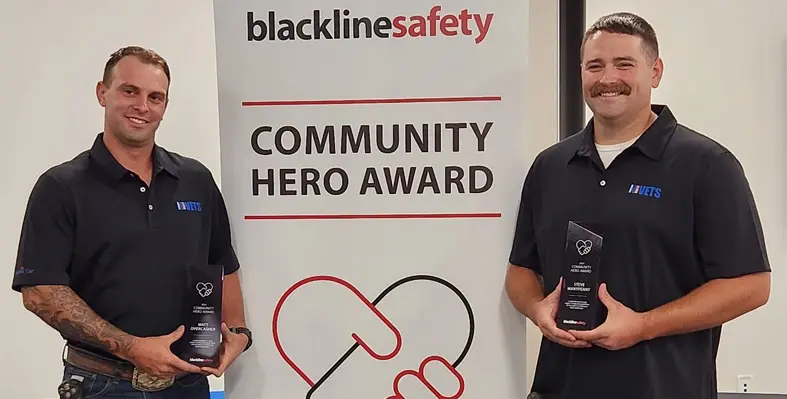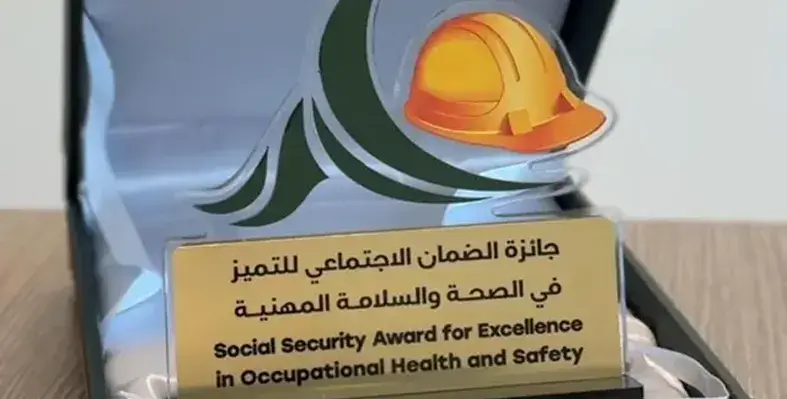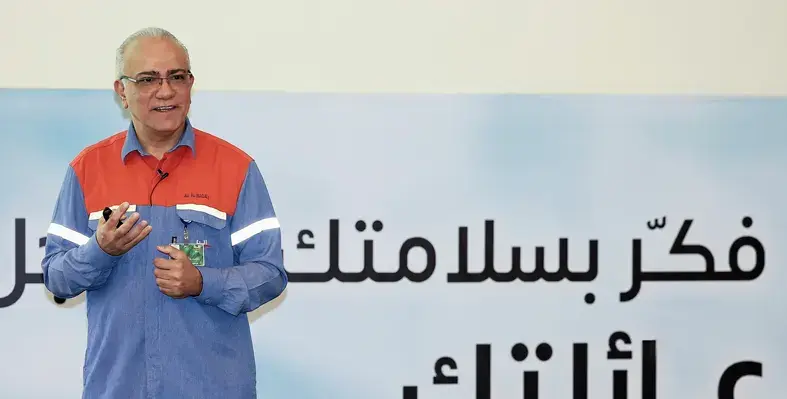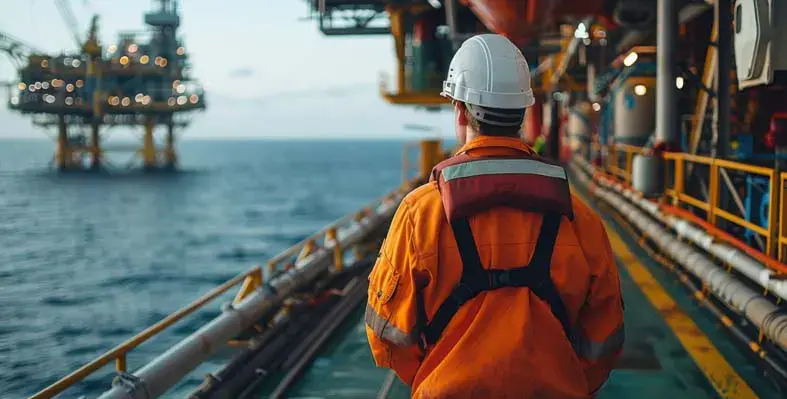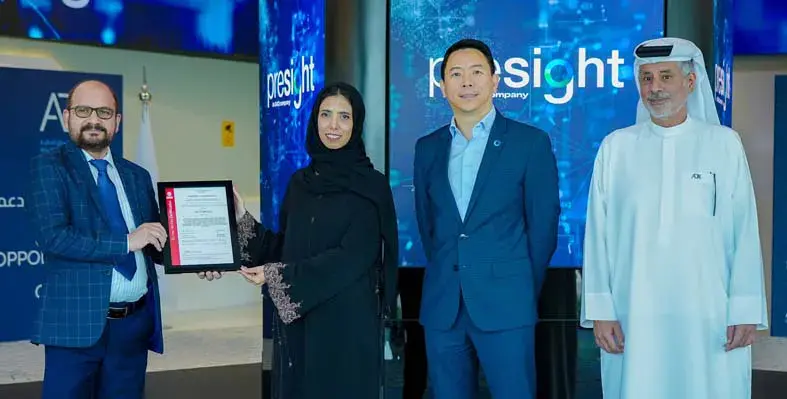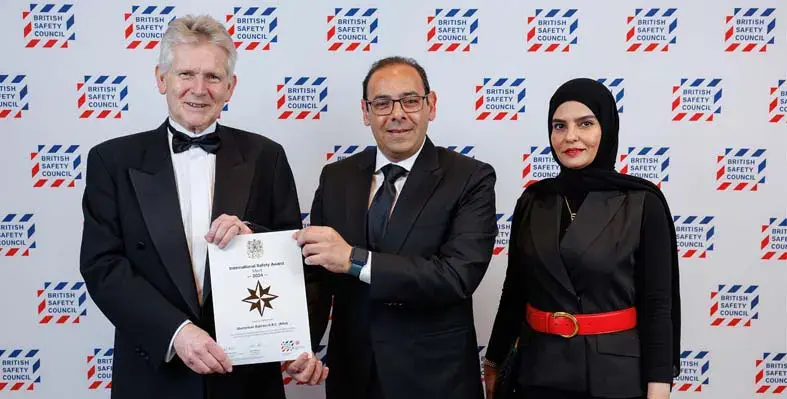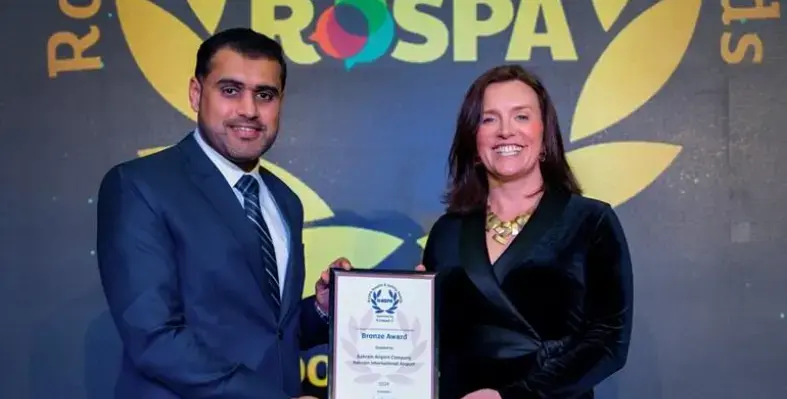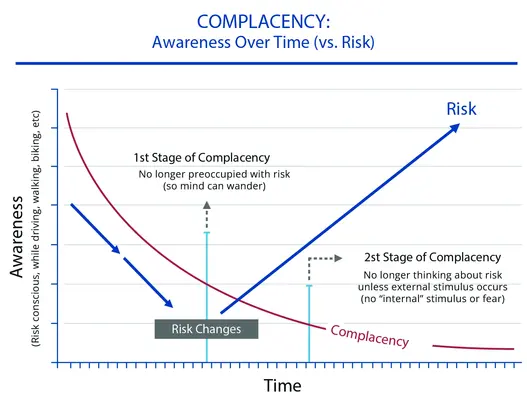HSE
HSE
- Details
- Sania Aziz
- HSE
- Topic: HSE
- Date: 9 August, 2024
- Year: 2024
The acclaimed HSE MENA Forum returns to Dubai in November for its eighth edition, providing exclusive insights into the latest HSE innovations and breakthroughs
FOR IMMEDIATE RELEASE
Dubai, UAE: The health, safety, and environment (HSE) market in the MENA region is experiencing significant growth, driven by developing economies, advancements in technology, increasingly stringent standards and new HSE approaches, frameworks and practices. These factors are reshaping industries by emphasising safety, compliance, and sustainability.
Taking place on 12-13 November at Le Meridien Hotel & Conference Centre Dubai, HSE MENA has an expanded focus on HSE across a variety of sectors, including oil and gas, construction, and critical infrastructure, with the aim to elevate compliance standards, protect operations and advance risk management strategies.
More than 200 key decision makers are expected to attend the Forum, which will see HSE experts from the region’s regulators and industry leaders share the strategies and best practices that have strengthened their HSE standards. They include ADNOC, Department of Health, DP World - Drydocks World, Dubai Holding Real Estate, Environmental Agency - Abu Dhabi, IOSH, Innovo, Petrofac, and the Ras Al Khaimah Economic Zone Authority.
With presentations and panel sessions across themes ranging from technology advancements and company culture to skills development and sustainability, the agenda will facilitate deep dives into topics such as effective governance and leadership, psychological safety, emergency preparedness and response, integrating digital technologies and managing and mitigating workplace hazards.
In addition, the latest innovations will be on show in the technology showcase hall, and there will be unrivalled networking opportunities throughout the event.
The growing list of sponsors includes DEKRA, ISN, ITT Innovations, Milwaukee and SafeStart.
“Don't miss this opportunity to connect with industry leaders and enhance your expertise in HSE. Let's unite to drive innovation and excellence for HSE practices across the MENA region,” said Elle Hawkins, project manager.
Download the brochure at https://events.offsnet.com/HSEMENA2024#/Brochure?lang=en
For further information, contact Elle Hawkins,
-ENDS-
- Details
- Sania Aziz
- HSE
- Topic: HSE
- Date: 6 August, 2024
- Year: 2024
The U.S. Trade and Development Agency has signed a feasibility study grant to help the Alexandria Petroleum Company (APC) improve the health, safety, and environmental protocols of its El Max refinery in Alexandria, Egypt
The grant will fund a series of studies to identify and address the facility’s priority safety and fire protection needs, advancing APC’s priority to upgrade and expand its safety programmes and equipment, improving forecasting and emergency response capabilities, and updating protocols and trainings. By adopting cutting-edge technologies and best practices, the El Max refinery, founded in 1962, will increase safety for workers and limit greenhouse gas emissions and environmental damage in the event of a fire or other emergency. The feasibility study will also serve as a model for other refineries in Egypt.
“Egypt’s commitment to bolstering the safety and health of its workers creates new opportunities for collaboration between organisations like USTDA and APC,” said Enoh T. Ebong, USTDA’s director. “This grant will help create opportunities for U.S. companies to supply the technologies and services that Egypt’s refineries will require.”
Egyptian Minister of Petroleum and Mineral Resources, H.E. Tarek El Molla said, “Health, Safety, and Environment have been key elements of the sector’s modernisation since 2016. Today, they remain strong among the sector’s core principals, along with upgrading our refineries to enhance safety and operational excellence.”
APC chairman Alaa Amin added, “Partnering with USTDA on this feasibility study marks an important step forward for APC. This study demonstrates our unwavering commitment to excellence in process safety, ensuring the highest safety standards for our operations in line with the Ministry of Petroleum and Mineral Resources strategy.”
APC is a subsidiary of the Egyptian General Petroleum Corporation (EGPC), under the Ministry of Petroleum and Mineral Resources.
- Details
- Sania Aziz
- HSE
- Topic: HSE
- Date: 31 July, 2024
- Year: 2024
Dubai Municipality conducted 52,233 inspections in the realms of environment, health, and food during the first half of 2024.
These inspections aimed to ensure that various activities and establishments in the city complied with standards related to consumer products, food safety, health and safety, and environmental regulations.
Dr. Naseem Mohammad Rafee, Acting CEO of the Environment, Health & Safety Agency at Dubai Municipality, emphasised the Municipality’s dedication to performing regular inspections and campaigns year-round. This is to foster a strong food and health ecosystem and to create a sustainable environment that supports flexible food supply chains and secures food safety in Dubai. Dr. Rafee also mentioned the Municipality's goal to sustain the environment and conserve natural resources, thus enhancing Dubai’s reputation as a sustainable and desirable city with a high quality of life.
Dr. Rafee said, “Dubai Municipality places a major emphasis on the food, environment, and safety sectors. We constantly strive to develop these sectors and enhance their safety through monitoring to guarantee the highest standards of safety and quality of life in the Emirate. Additionally, we seek to offer a cutting-edge infrastructure that supports the growth of businesses and initiatives while ensuring strict compliance with all the laws, regulations, and guidelines enacted in Dubai and the UAE.”
Health and safety
Dubai Municipality’s health and safety team, consisting of 95 supervisors, conducted 26,566 inspections across six campaigns targeting hotel facilities, shisha cafes, hair salons, beauty centres, worker accommodations, and community markets. They also ensured the safety of public spaces, playgrounds, event venues, industrial and professional enterprises, infrastructure projects, and temporary activities.
The Municipality also conducted campaigns at ports, assessing over 17,000 shipments of consumer products, equivalent to 145,000 tons, to ensure compliance with approved consumer specifications and safety standards.
Environmental sustainability
Dubai Municipality’s environmental team completed a total of 4,331 inspections. This included 3,378 inspections of projects, industrial, and service facilities, using a smart inspection system to efficiently plan and execute environmental monitoring tasks. Additionally, the Municipality organised a virtual awareness campaign to ensure businesses adhere to approved environmental laws and regulations.
Furthermore, the Municipality conducted 783 inspections to monitor the marine environment, coastal regions, and collect sea samples, ensuring compliance with environmental laws and regulations. Campaigns also included 170 inspections as part of the monitoring program for natural reserves in Dubai.
- Details
- Louise Waters
- HSE
- Topic: HSE
- Date: 30 July, 2024
- Year: 2024
Blackline Safety has launched the Blackline Safety Impact Awards, an international safety awards programme to recognise individuals and organisations that go above and beyond to keep their employees, communities and the environment safe
“Blackline’s No. 1 priority is ensuring that every worker returns home at the end of the day in the same form they arrived, and that communities and the environment are protected from life-threatening situations,” said Christine Gillies, chief product & marketing officer of Blackline Safety, whose suite of safety devices are used by hundreds of fire and hazmat, oil and gas, petrochemical, food production, biotech, transportation, utilities, and water and wastewater organisations globally.
“Our goal is to recognise Blackline technology users who are aligned with our mission and have helped save lives by avoiding serious incidents or causalities in their pursuit of safety,” Gillies explained.
Blackline’s gas detectors and gas monitors are supported by a cloud-connected monitoring and analytics platform, enabling organisations to view in real time all their workers’ locations and gas readings in the field, and configure their devices, from any Internet-connected smartphone, tablet or computer, no matter how remote the location.
Blackline Safety Impact Awards will be presented annually in a variety of award categories, including customer, channel partner and environmental heroes, in addition to community heroes. For more information and to nominate an organization, group or individual for the award, visit https://www.blacklinesafety.com/blackline-safety-impact-awards.
- Details
- Louise Waters
- HSE
- Topic: HSE
- Date: 24 July, 2024
- Year: 2024
Manaseer Ready-Mix, a subsidiary of Manaseer Group and one of the leading companies in Jordan in sectors including energy and mobility, building materials, industrial minerals and natural fertilisers, has achieved the Social Security Excellence Award for Occupational Safety and Health for 2022/2023
This prestigious award, presented annually by the Social Security Corporation is awarded for the implementation of occupational safety and health policies along with their practices, with criteria including applying the best international practices in the field of occupational health and safety, providing specialised training programmes for workers, and spreading a culture of safety in the work environment.
The winners received their awards at a special awards ceremony organised by the Social Security Corporation, under the patronage of His Excellency the Minister of Labor.
Commitment to creating a safe and positive workplace
This award reflects Manaseer Ready-Mix’s commitment to creating a safe and positive workplace, sustaining its success, and maintaining its commitment in safety and health requirements according to the best international standards. This has resulted in reinforcing the culture of workplace safety in line with Manaseer’s social and economic role. Manaseer Ready-Mix is encouraged by the award to continuously apply the latest programmes and technologies to achieve occupational safety and health.
As the largest private company in Jordan, Manseer Group provides employment opportunities for Jordanians and residents while delivering high-quality products across various industries. It contributes to creating a dynamic environment for innovation and sustainability, as well as playing a significant role in social responsibility through numerous community initiatives and environmentally friendly practices. Manaseer Industrial Complex - Chemical Factory received the Green Factory Award from Jordan Chamber of Industry for the 2022-2023 cycle. The Group has also been listed in Forbes "Top 100 Arab Family Companies" 2023 for the second consecutive year, as well as receiving the Arab Quality Award in 2023, making it the first Jordanian company to receive this certificate in recognition of its outstanding performance.
- Details
- Louise Waters
- HSE
- Topic: HSE
- Date: 23 July, 2024
- Year: 2024
Aluminium Bahrain B.S.C. (Alba), the world’s largest single-site smelter, has launched its 2024 summer safety & health (S&H) campaign entitled ‘Safety Reflection for Family's Protection’
The campaign prioritises the well-being of both Alba's employees and contracting company workers. Designed to mitigate summer-related health risks and injuries, it offers a mix of online and in-person educational sessions running from 22-30 July.
CEO Ali Al Baqali emphasised Alba's commitment to fostering a safety culture that extends beyond the workplace and into employees' homes and stated, “At Alba, Safety isn't just a company priority, it's a family value. Our S&H campaigns are about empowering our workforce to make smart choices that keep them healthy, not just for themselves, but for their loved ones waiting for them at home.
“This year, with everyone's active participation, we're confident in reaching an eighth consecutive summer free of heat-related injuries. I encourage everyone to make Safety a top priority, not just at work, but throughout the summer.”
The 'Safety Reflection for Family's Protection' Campaign offers a blend of informative presentations. In-house experts and external speakers will cover various summer safety topics, ensuring employees and contractor workers are well-equipped with the knowledge they need to stay safe. The campaign will also feature interactive visits to shop floor areas led by the company’s top officials to showcase practical summer safety strategies that employees can implement in their daily work routines.
- Details
- Louise Waters
- HSE
- Topic: HSE
- Date: 16 July, 2024
- Year: 2024
The inaugural Health, Safety & Environment Gulf of Mexico conference (HSE GOM) takes place at Hilton Greenway Plaza Houston Texas from 8-9 October 2024, providing an unparalleled opportunity to connect with the region’s offshore HSE community
The growing focus on health, safety and environment is putting pressure on the Gulf of Mexico’s oil and gas sector to update their strategies. Operators in the region grapple with key challenges such as the Covid hangover, getting workers on board, ageing assets and, notably, evolving stringent regulations kick-started by the events around the Deepwater Horizon disaster.
To combat these challenges, stakeholders are engaging in a range of best practices and deploying new technologies in order to bring their workforce together and mitigate risk for their operations moving forward.
Sharing best practices
HSE GOM will bring together leaders from the offshore community to share insights and best practices for enhancing safety standards and performance across the region. More than 20 expert speakers from companies including Apache Corporation, Baker Hughes, Bureau of Safety and Environmental Enforcement, Center for Offshore Safety, MSC Mediterranean Shipping Company, Murphy Oil Corporation, Shell and Weatherford will present on crucial topics across the four main themes of safety culture; process safety; planning and preparation; and technology and innovation.
“At HSE GOM, you’ll gain exclusive access to operator best practices and innovative technologies, exploring strategies to enhance safety performance across the region,” said Jack Heffernan, project manager. “Engage with 150 influential decision-makers during our dedicated networking sessions in our technology showcase hall, to catalyse potential partnerships and enhance your presence in the market. Don’t miss out as we hear from regulators including BSEE on standards development, explore industry-leading strategies for cultivating a robust safety culture, and discover cutting-edge advancements in PPE, ensuring the region’s workforce are optimally equipped.”
For full information, download the brochure at https://events.offsnet.com/HSEGOM2024#/Brochure
Contact Jack Heffernan at
- Details
- Louise Waters
- HSE
- Topic: HSE
- Date: 11 July, 2024
- Year: 2024
Presight, a leading big data analytics company powered by Generative AI, has been awarded for its health and safety management system and environmental management system, among others
Presight has scooped nine ISO certifications, encompassing various aspects of organisational management, including corporate governance, risk management, quality, health and safety, environment, information security, privacy information, compliance management and business continuity management systems.
The achievement of these ISO certifications – which collectively enhance operational efficiency, data security, and resilience – reflects Presight’s dedication to maintaining the highest standards of corporate governance and operational excellence, the company says, adding that these certifications will serve as a cornerstone of its strategy to drive sustainable success and deliver unparalleled value to its clients and stakeholders.
Maintaining the highest standards
Hamda Eid AlMheiri, board member of Presight, said, “Attaining these nine ISO certifications underscores a dedication to maintaining the highest standards across all facets of Presight operations. This accomplishment not only enhances the company’s credibility but also reinforces its commitment to delivering exceptional value to stakeholders.”
Thomas Pramotedham, CEO of Presight, added, “Earning these ISO certifications is a testament to Presight’s relentless pursuit of excellence and innovation. Each certification represents a critical component of our robust management systems, ensuring we meet and exceed industry standards. This milestone propels us forward in our mission to leverage big data analytics for impactful, data-driven decisions.”
- Details
- Louise Waters
- HSE
- Topic: HSE
- Date: 9 July, 2024
- Year: 2024
Aluminium Bahrain B.S.C. (Alba), the world’s largest single-site smelter, has been awarded the British Safety Council (BSC)’s International Safety Award with merit, reflecting its safety leadership and exceptional safety record
The award was presented during the BSC’s International Safety Awards Gala Dinner held in London in June. Nezar Hameed, Alba’s senior safety and health manager received the award from Michael Robinson, CEO of the British Safety Council in the presence of Zainab Hassan, Alba’s head of Medical Administration.
Alba’s chief executive officer, Ali Al Baqali, commented, “At Alba, Safety isn't just a priority, it's a shared responsibility. A strong safety culture, where teamwork and prioritising safety are fundamental, is embedded throughout our organisation.
“By empowering our employees to prioritise safety in all aspects of their work, we've built a strong foundation for a zero-accident environment. This award from the British Safety Council is a proud testament to our entire team's dedication.”
Alba has received a total of 11 awards by the British Safety Council since 2014. In November 2023, Alba was the first smelter in the GCC to achieve the 4-star audit rating, following a successful Five Star Occupational Health and Safety Audit conducted by the British Safety Council.
- Details
- Sania Aziz
- HSE
- Topic: HSE
- Date: 5 July, 2024
- Year: 2024
Bahrain International Airport (BIA) has received the Royal Society for the Prevention of Accidents (RoSPA) Health and Safety Award for the fourth year running, according to Bahrain Airport Company (BAC).
This award was granted during the RoSPA Health and Safety Awards Ceremony, which took place on June 6, 2024, at the Kempinski Central Avenue Dubai.
Eng. Hasan Farhan, BAC's Health, Safety, and Environment (HSE) Manager, attended the ceremony and got the award.
The RoSPA Awards system, the longest-running of its kind in the UK, receives entries from organisations all over the world, making it one of the most coveted accomplishment awards for health and safety. Applications are rigorously reviewed by a team of safety professionals, providing essential comments for improving health and safety standards.
BAC CEO, Mohamed Yousif Al Binfalah commented, “This achievement would not have been possible without the dedication of our HSE team. The award reflects the airport community commitment to safety and the diligent work our team members contributions to adhere to the best industry health and safety practices. At BAC, the safety of passengers and staff is a top priority, and we strive to work with our partners to maintain the highest standards at the airport.”
- Details
- Sania Aziz
- HSE
- Topic: HSE
- Date: 2 July, 2024
- Year: 2024
International SOS has advised UAE companies to prioritise workforce safety as global heat waves are predicted to intensify.
Workers face significant dangers in extreme heat conditions, such as heatstroke, dehydration, and heat exhaustion. These risks can reduce productivity, increase accidents, and result in fatalities. Each year, excessive heat contributes to 22.85 million occupational injuries and 18,970 work-related deaths.
In the UAE, heat stress is a persistent issue for outdoor workers, especially during summer when temperatures can soar up to 50°C. To address this, the Ministry of Labour has enforced a nationwide ban on outdoor work from 12:30 PM to 3:00 PM during summer months.
The Ministry also requires employers to clearly display working hours and provide rest areas with drinking water, first aid kits, and sun protection measures. In 2023, nearly 95.5% of employers complied with this ban, thanks to stringent inspections.
Various sectors are affected by extreme weather, with certain jobs being at higher risk due to physical demands and outdoor conditions. Indoor industrial workers are also vulnerable if factory and workshop temperatures are not properly regulated.
Warmer temperatures expected
High heat levels can make even basic office tasks challenging, leading to mental fatigue and reduced cognitive abilities. Excessive heat exposure poses serious health risks, including heatstroke and potentially death. Organisations must take proactive measures to mitigate these risks and ensure the well-being and productivity of their workforce.
Dr Ehab Chalabie, medical director, medical services, Middle East, International SOS, said, “...Organisations must go beyond basic heat stress prevention and integrate heat stress risk assessments into their health and safety policies. Furthermore, training employees to recognise early signs of heat illness is critical. Early intervention can prevent a medical emergency and long-term health consequences. By fostering a culture of heat awareness and encouraging frequent hydration and breaks during peak temperatures, organisations can empower their workforce to stay healthy and safe.
“It is also important for organisations to be able to distinguish the different stages of heat-related illness. Heatstroke, the most severe heat illness, is a medical emergency and can cause long term impact if prompt medical attention is not given. Symptoms include a core body temperature exceeding 40°C, nausea and/or vomiting, confusion and seizures. Recognising the early signs of heat stress, such as sweating, dizziness, headache and cramps, allows swift intervention to prevent escalation to heat exhaustion or heat stroke.”
International SOS has provided guidelines for organisations to mitigate health risks from extreme heat events. These include conducting regular heat-specific risk assessments to identify high-risk areas and vulnerable employees. Organisations should integrate heat safety into their health and safety policies by providing shaded areas, hydration stations, and appropriate workwear. Training employees on heat stress awareness, proper hydration, sun protection, and recognising symptoms is crucial. Developing and communicating robust response protocols for heat-related illnesses is also recommended.
Additionally, organisations should continuously review and update their heat response plans to ensure they reflect the latest best practices. These measures aim to protect the workforce from the dangers of extreme heat, maintaining productivity and ensuring employee well-being.
- Details
- Sania Aziz
- HSE
- Topic: HSE
- Date: 1 July, 2024
- Year: 2024
Larry Wilson, author and CEO, SafeStart, explains the contributing factors to critical errors. Read on:
Welcome back to the Paradigm Shifts series! In the last article we looked at serious injuries, the contributing factors and just how often mind not on task and eyes not on task were involved, or at least how often they were both involved in the serious injuries that have happened to us (almost every one). And if it’s of any comfort, the same questions have been asked to over a million people in 66 countries, so you’re not alone. The same two critical errors that contributed to your serious injuries also contributed to theirs (and mine).
In this article, like in the first four of this series, you will find a couple of new ideas or paradigm shifts that are somewhat counter-intuitive or almost the opposite of what most people think, that we will explore in more depth. We will also look at some practical, extremely cost effective (free) ways to reduce serious injuries 50% or more. But for now, let’s go back to the last article and the importance of those first two critical errors, eyes and mind not on task.
What we found was that for almost all of us, if we exclude sports, eyes not on task and mind not on task were involved in a very high percentage of our serious injuries, whether they were at work, at home, in the community or on the road. But it doesn’t seem quite right (almost misleading) to say that these two critical errors were just “involved”, because we are never trying to get seriously hurt anywhere or anytime! It’s more like these two errors had to happen or that they have to happen at the same time. Otherwise, if we see it coming, we will almost always get the benefit of our reflexes—which, in most cases, will be enough to prevent a direct hit, blind fall or a head-on collision.
This is not to say that these two critical errors by themselves cause all the serious injuries and fatalities. There are always at least two (or more) contributing factors. But quite often those other factors like the type of hazardous energy: electrical, mechanical, thermal and amount or kind of protection vary considerably as you go from burn to fall to motor vehicle accident. Whereas the first two critical errors, eyes and mind not on task—happening at the same time—are involved in almost every one. And since mind not on task is bound to happen if you know how to do something well, there is much more “leverage” or efficiency in getting people to put some additional effort or more effort than they are currently making (none) into improving their safety-related habits: like moving their eyes first, before they move, looking for line-of-fire potential before moving, looking for things that would cause them to lose their balance, traction or grip, etc.
